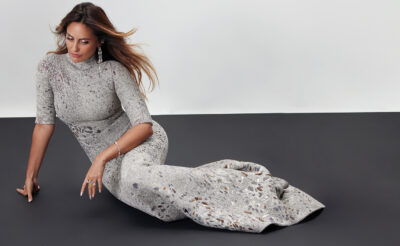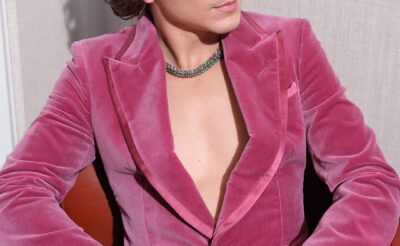“I have always had a passion for art, design and beautiful genuine craftsmanship” says Hanna Ransjö, founder and creative director of Dubai-based leather handbag label, Halm. The designer adds that this passion is something that has passed down to her by her grandparents; both Swedish academics and ardent craft artisans. “Perhaps not a very common combination, but it taught me balance,” says Hanna.
Officially founded in October 2017, Halm — which has a design studio in Dubai Design District and an atelier in Jumeirah — was a concept that had been brewing for a long time, according to Hanna. “I wanted to create understated luxury with limited-edition pieces focused on timeless quality and functionality,” says the Swedish designer.
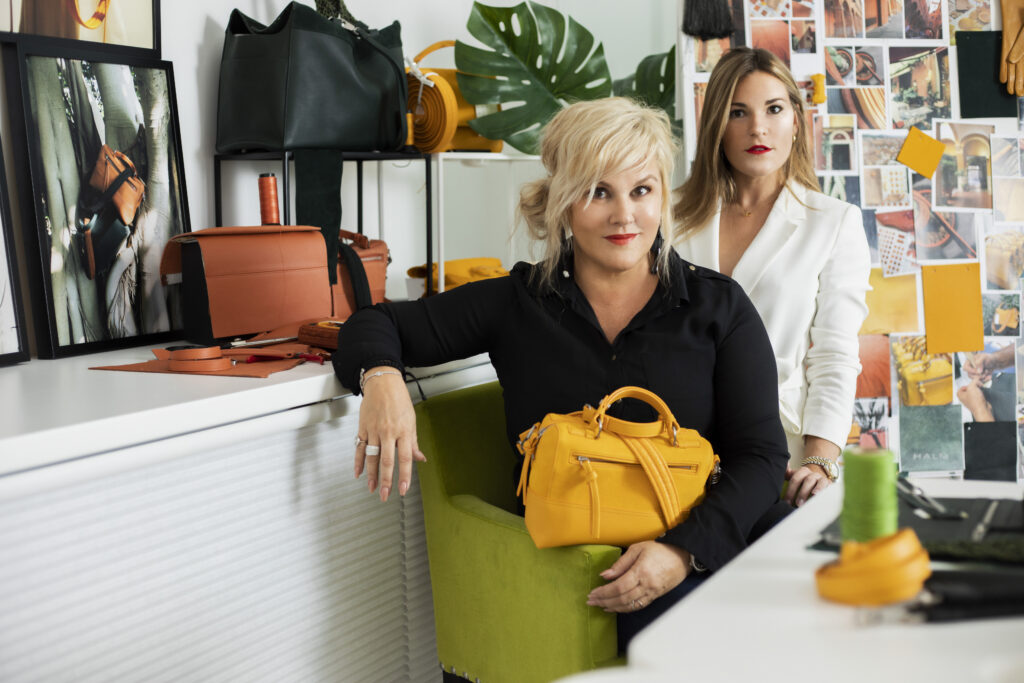
Halm’s founder and creative director, Hanna Ransjö (left) with the brand’s design and project manager, Hannah Louise Brewer (right)
Despite its array of beautifully classic designs, often spotted on the arm of regional influencers and even Queen Rania of Jordan, Halm is facing an uncertain future with the global pandemic threatening the UAE’s homegrown fashion labels. Here, Hanna Ransjö tells MOJEH how the crisis has affected her personally, how the industry can use lockdown as a learning curve and why luxury fashion should reinvent itself to survive.
Before the coronavirus lockdown came into effect, what were you working on?
So many exciting ideas and projects, just to mention a couple: joining Rolls Royce in the UK with their ‘Strive for Perfection’ event that will now take place in October, a gorgeous collaboration with Kristina Fidelskaya — an exclusive made to order collection that was showcased at her amazing AW20 Paris Fashion Week runway show and launching our 1.3 collection.
Plans for 2020 are still very much in the works and feels even more current now to focus on those ideas, it goes beyond bags… but I can let you know that we are planning a new collection that is even more gender neutral, as we have been receiving many requests from our male customers and it feels timeless too.
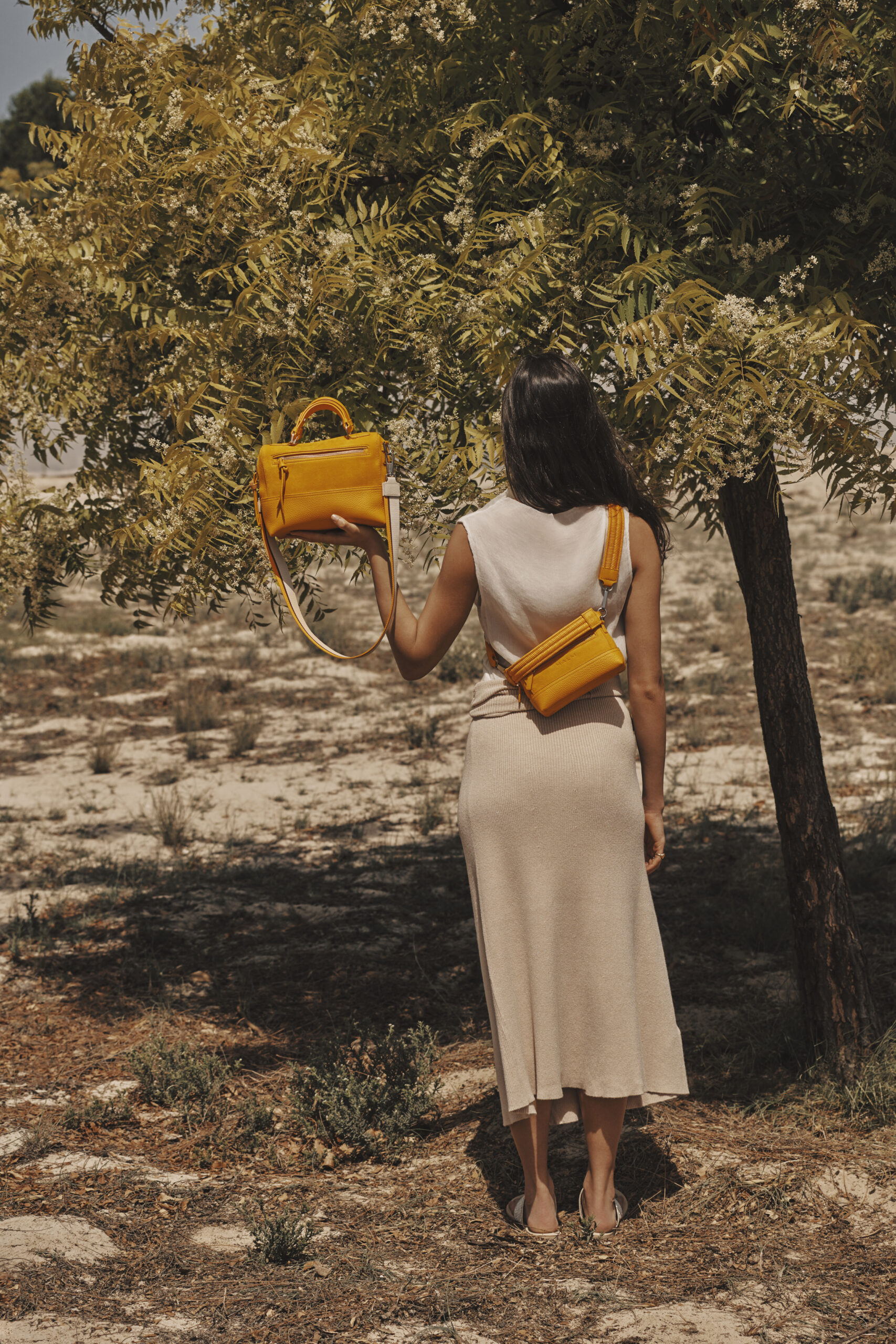
Halm 1.3 Collection
How has coronavirus impacted upon your business?
Beside the obvious scenario that has affected everyone, it has separated us both locally as a company, but also internationally but we have a great team whom have tried their very best to keep us all together and continuing to work during these difficult circumstances especially since I have been stuck in Switzerland since February when I had a serious skiing accident (the day before the Paris Fashion Week ) and couldn’t travel due to the injury. This was compounded when I discovered my doctor had contracted Covid-19 and I had to ‘isolate’ for weeks on top of that. Then flights stopped completely. I have been trapped, for want of a better word, in a chalet on the top of a mountain in a completely ghost like ski resort which is an eerie experience, especially when you cannot use your right arm and shoulder. I am waiting to see whether I need to operate.
But all this it has truly given me a chance to pause and reboot l – clearly that has affected the business in the sense that we couldn’t continue as usual – an abrupt halt in what we normally take for granted. An incredible eyeopener, and as cliché as it may sound, for that I am grateful.
What changes have you had to implement to your business to diversify?
Actually, not to implement, but intensify and bring forward what was already planned as it feels even more relevant now. We are going to introduce the ‘World of Palm’ in 2020…watch this space.
What’s your strategy for business post-crisis?
Focus even more on what really matters, work from the heart and your gut feeling and don’t change the ethos that is the very essence of Halm: quality over quantity, honesty and let the passion shine through in the craftsmanship and sustainable choices. We want to take a closer look at how we do things in the company – what can we change and do differently more efficient so we have more time to be creative, inspired and balanced. It will take some soul searching and self analysis and might be a surprise but necessary for us all I believe.
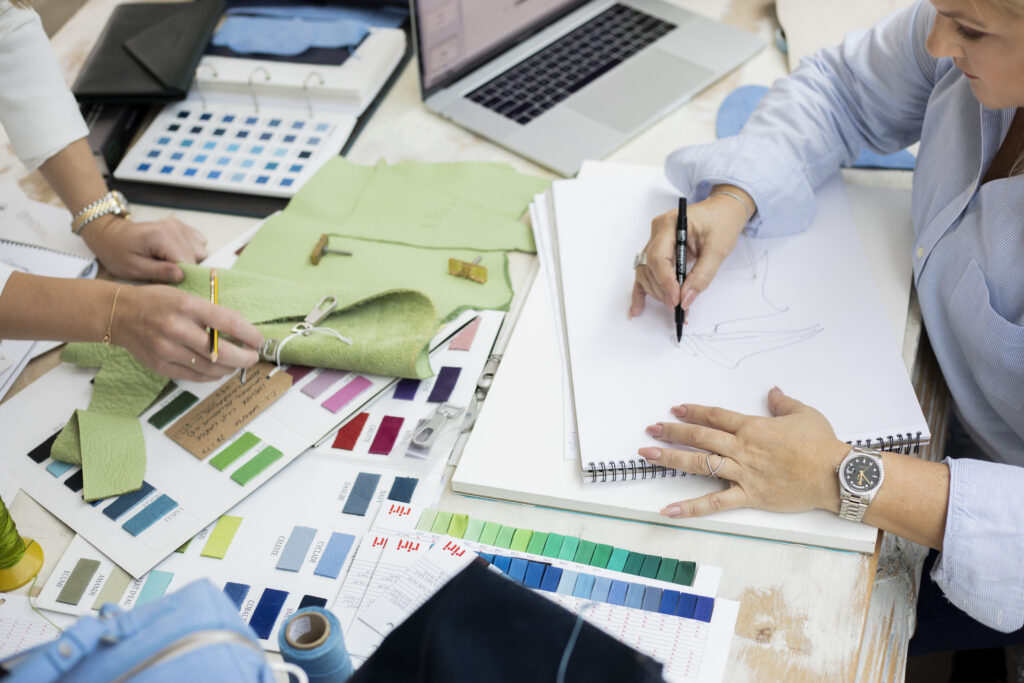
Hanna Ransjö in Halm’s design studio in Dubai
What is this period of turbulence likely to mean for the future of the regional fashion industry?
Stay together, be supportive, lift each other collectively regardless of origin – we are based in the Middle East and we are here together, communicate on a different level – be open and believe in paying it forward.
What are your thoughts about how the industry will have to rebuild and reinvent itself post crisis?
Slow fashion is something we all need to adopt, in the light of the impact of overconsumption on the planets resources and the environmental pollution caused. It’s the elephant in the room that no-one wants to talk about. We need to go back to the time when people used to save up for that something they really wanted and loved, and indeed, looked after once they had it. And in this new situation, companies need to downsize and hone their skills, and be proud of what they produce. It’s a massive rethink but if your goal is to make lots of money out of essentially non-essential items, you may not have a future, in my own humble opinion.
Are there any fashion councils advising you on how to move forward?
Dubai Design & Fashion Council and Arab Fashion Council have made continuous efforts in assisting the industry with webinars, information and advice in general.
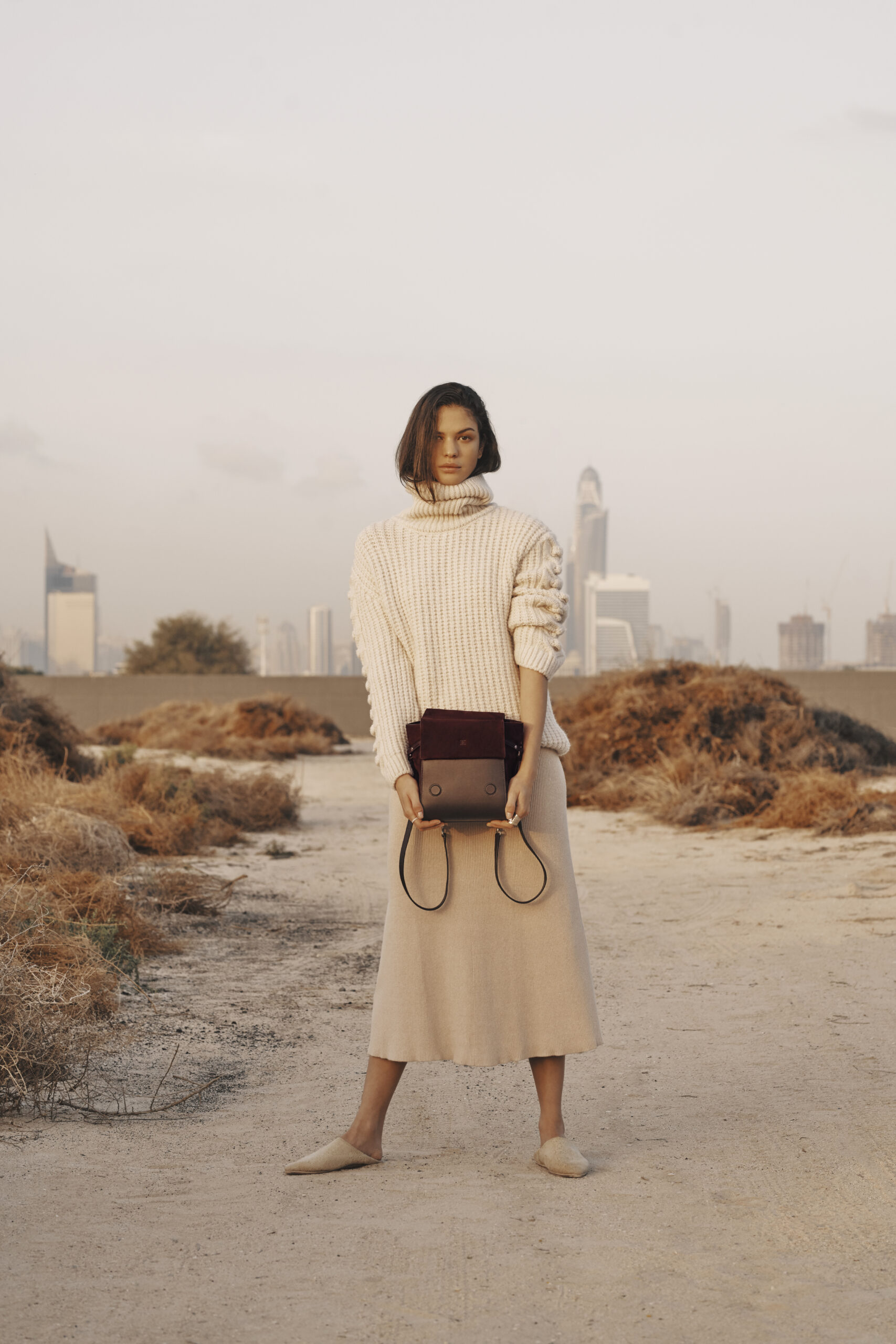
Halm 1.3 Collection
What more can be done to insure the regional fashion industry can survive this crisis?
Who really knows.. but I do firmly believe that we need to re-educate ourselves about what we buy and what we want to represent and support. The regional fashion industry is a growing trend, as people look towards their own culture and heritage, and appreciate home grown talent. This can be supported with good showcase opportunities, even whereby local talent can be taken abroad and showcased where there may be new ways of working and collaborations are key I believe on many levels , for example as we had the opportunity to do in with Kristina Fidelskaya.
How are you supporting your brands or employees at this time?
Holding a give away/feel good competition for positive encouragement and focusing our images on the beauty of nature, interiors and lifestyle on Instagram stories. ie. We are not focusing on sales at all just good vibes. We have kept in regular contact via Zoom, not reducing salaries as some had to do, offering alternate accommodation where possible and planning further education and mentoring such as online courses and changing some tasks and duties around to create better understanding for each others roles etc.
Are you implementing more ethical business practices than normal during this time?
Locally made was already in the works and will increase…continuously striving for and even more sustainable ways and more than ever supporting local small businesses.
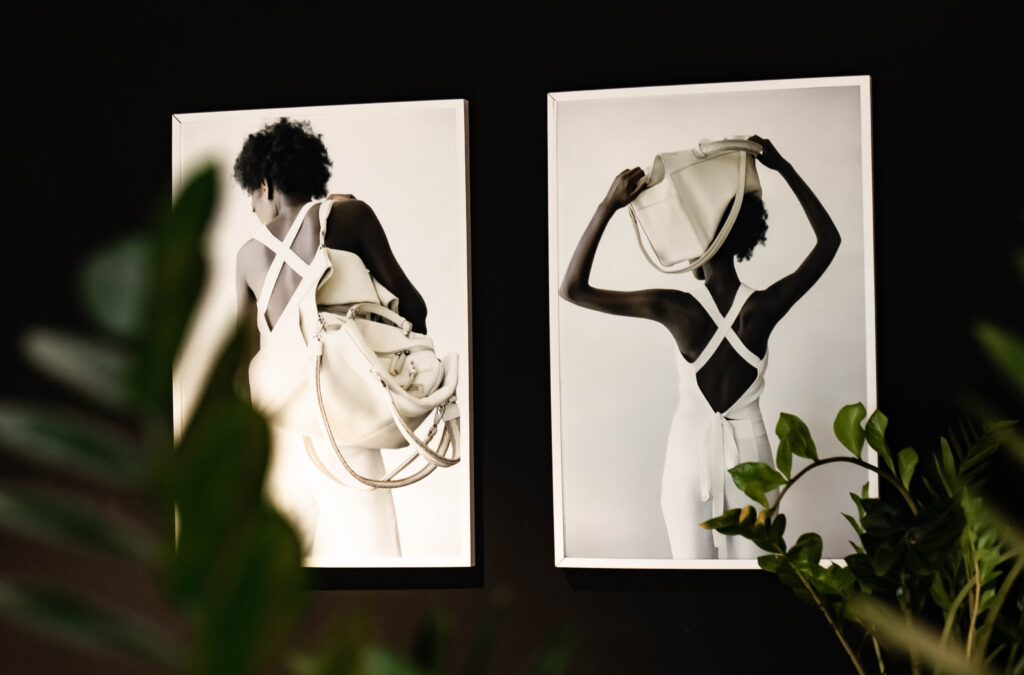
Inside Halm’s design studio in Dubai
What are your thoughts on skipping or combining seasonal collections?
This is what we do already for exactly this reason, that a beautifully crafted timeless piece can be updated any season with accessories but would never be discarded. Slow fashion is at the very core and ethos of Halm and it is our philosophy of sustainability.
Do you think the industry can survive this pandemic and its associated repercussions?
Absolutely .. but not by remaining the same. It needs to slow down, reconnect with the purpose and passion, set up new goals and that will mean fewer profits and it will be very difficult.
What do independent labels/designers and SME’s need right now to help cope in this crisis?
A new way of thinking from the larger well established online e-commerce companies and department stores to support innovative independent labels and nurturing the creativity in a more ‘pro bono’ approach. If these companies and the major luxury goods companies stay stagnant and not reinvent the business approach of mass production I think we will see many of them disappear.
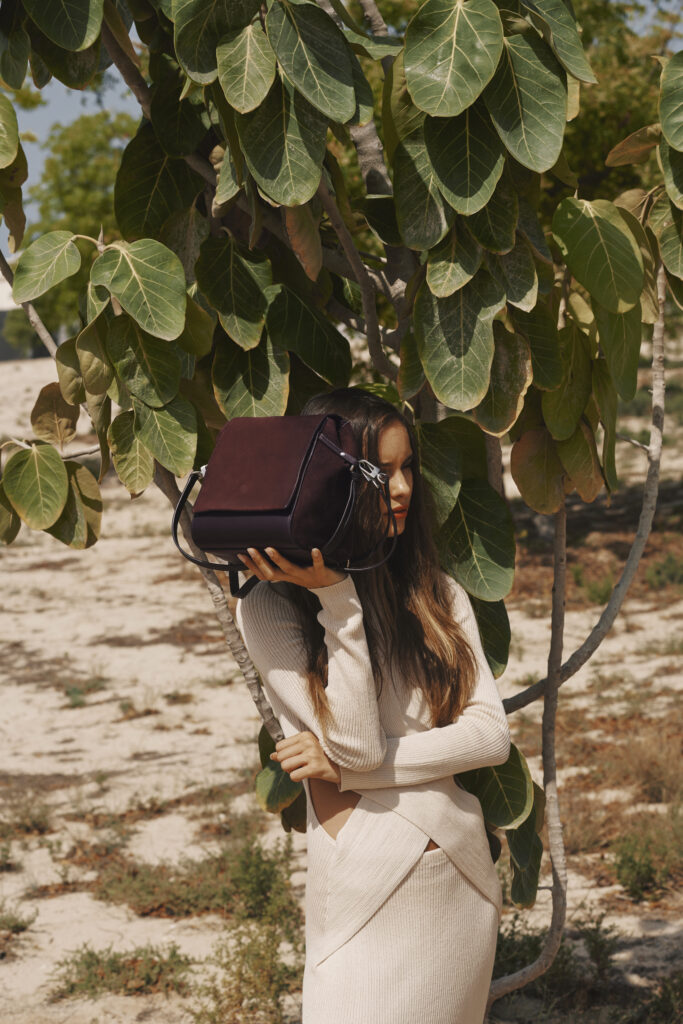
Halm 1.3 Collection
What advice could you give to others in the industry upon getting through this crisis?
Again…I wouldn’t presume I have the right answers in this complex situation, let alone give advice during such a fragile moment in time. I only know what I will do myself and that I can share; go with my passion, experience and gut feeling – (then think it over very carefully with my brain!) Anyone less than passionate, creative, humble and genuine that is ready to embrace new ways will have a really hard time to pull through – even then there is no guarantee so be prepared to change but keep your cores firm. Easy to say but in the end action speaks louder than words.
And what is the single biggest thing that you need from the regional fashion consumers at this time?
I am not sure I am in the right position or person to give advice on that but what I would like to see is companies producing quality goods responsibly and take an active part in actually ‘educating the consumers’ – i.e. us all – as they have the power and a brilliant opportunity to do so.
To make us stop and think: is this the right thing to buy, who made it and what do they stand for, is it something I would use many many times and it will be even more beautiful with wear ( particularly with leather goods) is it respecting the natural beauty of its origin?
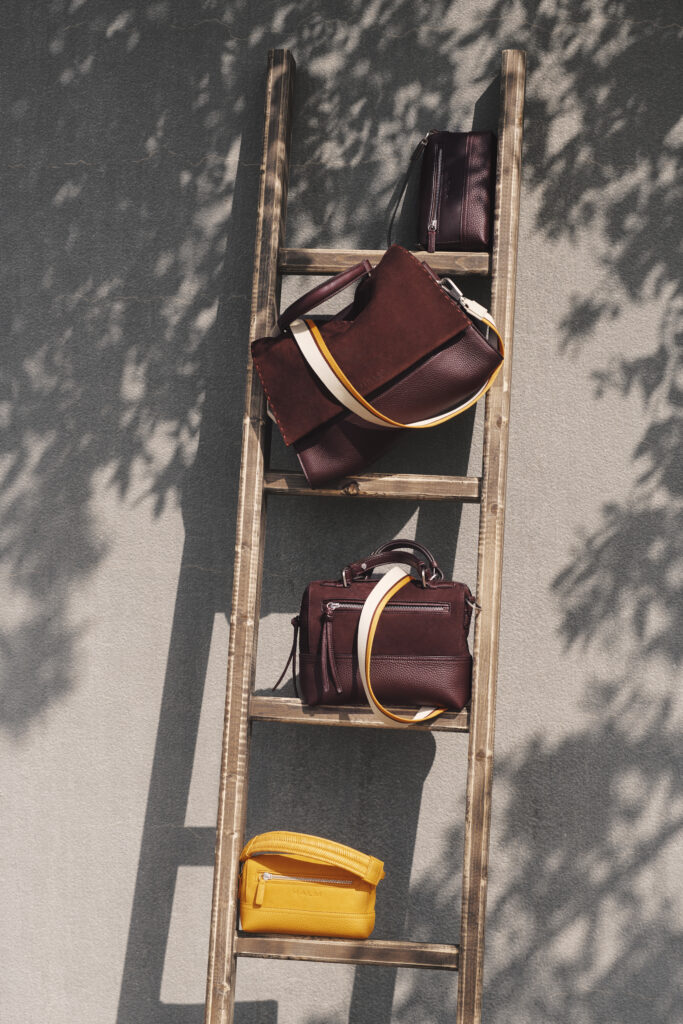
Halm 1.3 Collection
After all…what is luxury to you?
To me its about knowing I have paid for a quality product that a lot of thought , effort and love has been put into it and I will wear it with pride and confidence because of that.
Finally, how are you trying to stay positive during this difficult time? Reflect back on what made me start this in the first place, out of passion for quality, craftsmanship and natural beauty not hidden behind layers of artificial coatings… There have been times during this lockdown and isolation where I have questioned many things, among them what we do – like so many others – but I came to the conclusion that we should use the learning curve and all the experiences we have had so far, to complete that journey that we started, which is to make beautiful and useful quality items that aspire to last a lifetime. Halmonline.com
Read Next: Saudi Designer Deema Ajlani on supporting local and surviving Covid-19

